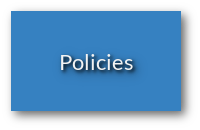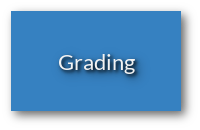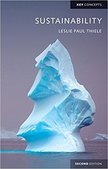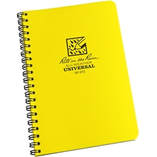course description
What does it mean to be human in the Anthropocene – a time when we know human-caused climate change challenges lifeways and ecosystems globally? This FYE uses the anthropological lenses of archaeology and cultural anthropology to understand how the past informs the present, and how both can shape our collective futures. Each block features a week-long stay at Colorado College’s Baca Campus in the San Luis Valley, Colorado.
Block 1: Archaeology of Sustainability. For at least 10,000 years people have lived in the San Luis Valley of Colorado (home of the Colorado College Baca campus). Understanding the long human and environmental history of the valley will develop our knowledge of the Anthropocene and sustainability. Our methods and modes of inquiry will begin with the discipline of archaeology. Archaeology is more than a search for artifacts, it is a scientific discipline devoted to reconstructing and understanding the long and diverse human experience. With our long-term perspective of the San Luis Valley developed through archaeology, we will engage with the interdisciplinary concepts of resilience, vulnerability, complex adaptive systems, and coupled socioecological systems. These concepts will connect us to the dialog and efforts of contemporary local to global communities to address current sustainability challenges (e.g., climate change, environmental degradation, food security). Throughout our investigation, you will be asked to consider the question: how can the past inform the present and future?
SCHEDULING: Week 1 will be on campus, with morning sessions and several afternoon sessions. Week 2 will be at the Baca campus and will include 1-2 nights of camping. Week 3 and 4 will be on campus.
Block 2: Sociocultural Anthropology of Sustainability. Taught by Professor Sarah Hautzinger. In Block 2, we shift toward a socio-cultural lens, focused on lived human experience in the present, to continue exploring sustainability and resiliency. How do conceptions of culture and meaning, of in/equalities and social justice, and ecologies – of self, community, and interdependency beyond the human – inform human adaptability, sustainability and thriving in different environments? We lay a foundation about human modes of production -- foraging, horticulture, pastoralism, agriculture, industry – before turning to the Rocky Mountain West as a region. The complex, contemporary Crestone/Baca communities neighboring the Baca Campus become the focus of our case study. In a community-based learning collaboration with locals, including over 20, international spiritual communities, students create an ethnographic archive that reflects ongoing efforts to envision sustainability and renewal in the area, along with the practices and concrete action projects that emerge from this process.
Each block features a week-long field trip to Colorado College’s Baca Campus in the San Luis Valley, Colorado. During Block 1, this will include visits to several archaeological sites in the region; hiking and tent camping may be required on visits beyond the Baca campus. During Block 2 the community-based collaboration will require some extended and irregular hours. Back on campus, both blocks will require occasional afternoon classes and archival laboratory meetings. During field trips, teaching and learning experiences will be scheduled throughout the day and include most evenings.
BOOK (REQUIRED)
Block 1: Archaeology of Sustainability. For at least 10,000 years people have lived in the San Luis Valley of Colorado (home of the Colorado College Baca campus). Understanding the long human and environmental history of the valley will develop our knowledge of the Anthropocene and sustainability. Our methods and modes of inquiry will begin with the discipline of archaeology. Archaeology is more than a search for artifacts, it is a scientific discipline devoted to reconstructing and understanding the long and diverse human experience. With our long-term perspective of the San Luis Valley developed through archaeology, we will engage with the interdisciplinary concepts of resilience, vulnerability, complex adaptive systems, and coupled socioecological systems. These concepts will connect us to the dialog and efforts of contemporary local to global communities to address current sustainability challenges (e.g., climate change, environmental degradation, food security). Throughout our investigation, you will be asked to consider the question: how can the past inform the present and future?
SCHEDULING: Week 1 will be on campus, with morning sessions and several afternoon sessions. Week 2 will be at the Baca campus and will include 1-2 nights of camping. Week 3 and 4 will be on campus.
Block 2: Sociocultural Anthropology of Sustainability. Taught by Professor Sarah Hautzinger. In Block 2, we shift toward a socio-cultural lens, focused on lived human experience in the present, to continue exploring sustainability and resiliency. How do conceptions of culture and meaning, of in/equalities and social justice, and ecologies – of self, community, and interdependency beyond the human – inform human adaptability, sustainability and thriving in different environments? We lay a foundation about human modes of production -- foraging, horticulture, pastoralism, agriculture, industry – before turning to the Rocky Mountain West as a region. The complex, contemporary Crestone/Baca communities neighboring the Baca Campus become the focus of our case study. In a community-based learning collaboration with locals, including over 20, international spiritual communities, students create an ethnographic archive that reflects ongoing efforts to envision sustainability and renewal in the area, along with the practices and concrete action projects that emerge from this process.
Each block features a week-long field trip to Colorado College’s Baca Campus in the San Luis Valley, Colorado. During Block 1, this will include visits to several archaeological sites in the region; hiking and tent camping may be required on visits beyond the Baca campus. During Block 2 the community-based collaboration will require some extended and irregular hours. Back on campus, both blocks will require occasional afternoon classes and archival laboratory meetings. During field trips, teaching and learning experiences will be scheduled throughout the day and include most evenings.
BOOK (REQUIRED)
Additional readings will be posted on Canvas. See course schedule.






